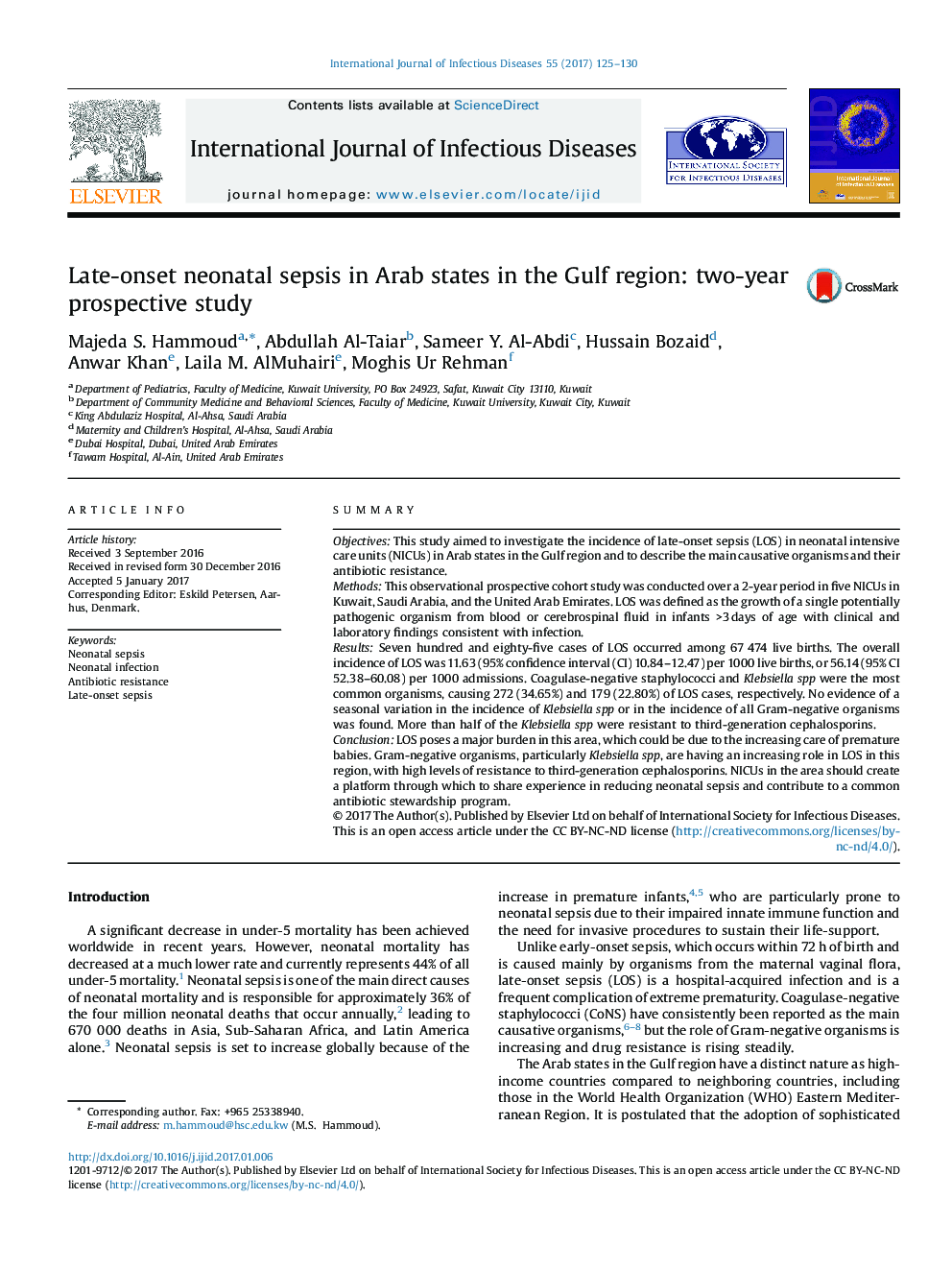| کد مقاله | کد نشریه | سال انتشار | مقاله انگلیسی | نسخه تمام متن |
|---|---|---|---|---|
| 5667366 | 1592038 | 2017 | 6 صفحه PDF | دانلود رایگان |

- There is paucity of data on LOS in Arab states in the gulf region a group of oil-rich countries that are distinct from neighboring countries.
- LOS represents a major burden in Arab states in the Gulf region, which might be related to the increasing care of premature babies.
- Gram-negative organisms have an increasing role in LOS in Arab states in the Gulf region, with a high level of resistance to antibiotics.
SummaryObjectivesThis study aimed to investigate the incidence of late-onset sepsis (LOS) in neonatal intensive care units (NICUs) in Arab states in the Gulf region and to describe the main causative organisms and their antibiotic resistance.MethodsThis observational prospective cohort study was conducted over a 2-year period in five NICUs in Kuwait, Saudi Arabia, and the United Arab Emirates. LOS was defined as the growth of a single potentially pathogenic organism from blood or cerebrospinal fluid in infants >3Â days of age with clinical and laboratory findings consistent with infection.ResultsSeven hundred and eighty-five cases of LOS occurred among 67 474 live births. The overall incidence of LOS was 11.63 (95% confidence interval (CI) 10.84-12.47) per 1000 live births, or 56.14 (95% CI 52.38-60.08) per 1000 admissions. Coagulase-negative staphylococci and Klebsiella spp were the most common organisms, causing 272 (34.65%) and 179 (22.80%) of LOS cases, respectively. No evidence of a seasonal variation in the incidence of Klebsiella spp or in the incidence of all Gram-negative organisms was found. More than half of the Klebsiella spp were resistant to third-generation cephalosporins.ConclusionLOS poses a major burden in this area, which could be due to the increasing care of premature babies. Gram-negative organisms, particularly Klebsiella spp, are having an increasing role in LOS in this region, with high levels of resistance to third-generation cephalosporins. NICUs in the area should create a platform through which to share experience in reducing neonatal sepsis and contribute to a common antibiotic stewardship program.
Journal: International Journal of Infectious Diseases - Volume 55, February 2017, Pages 125-130